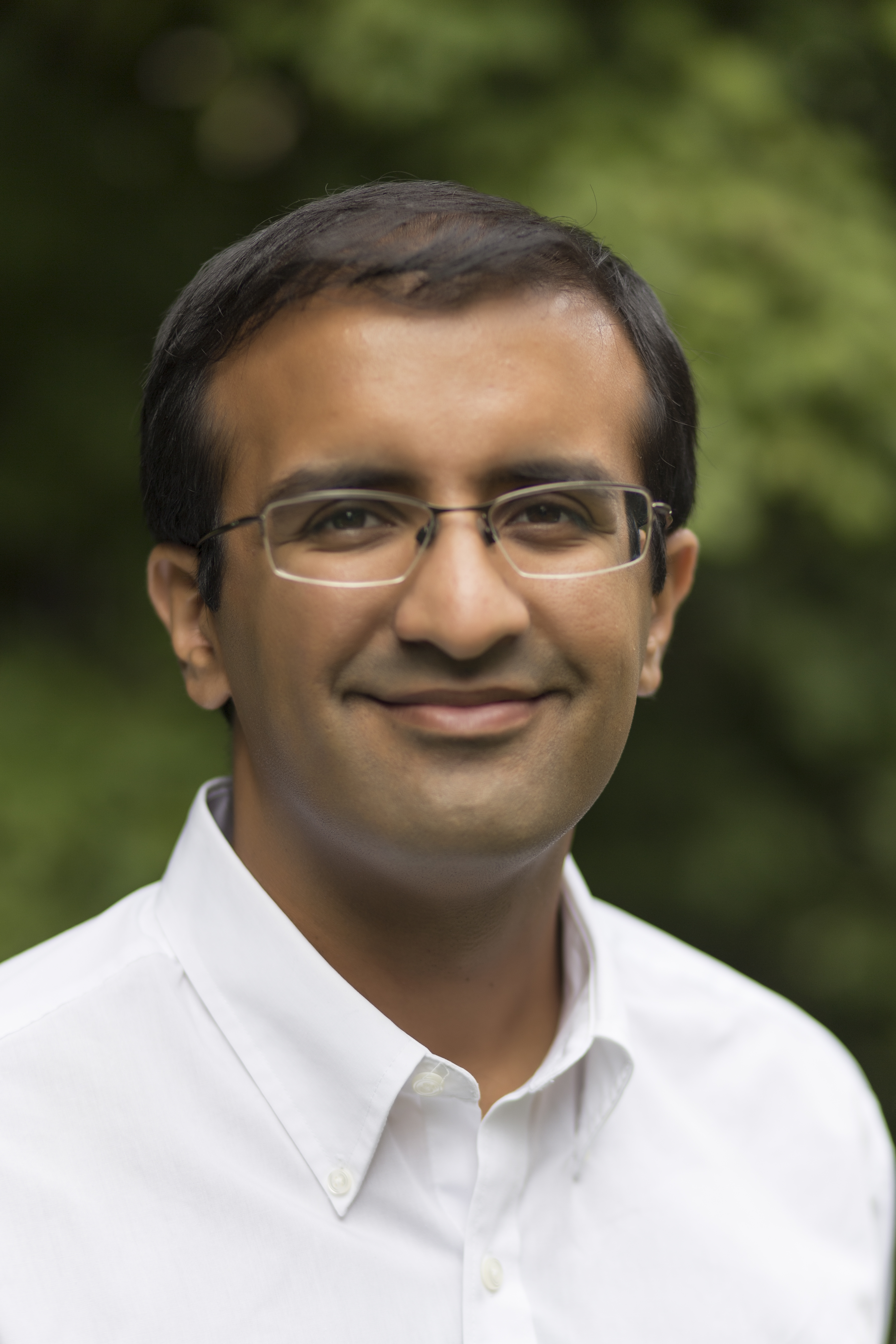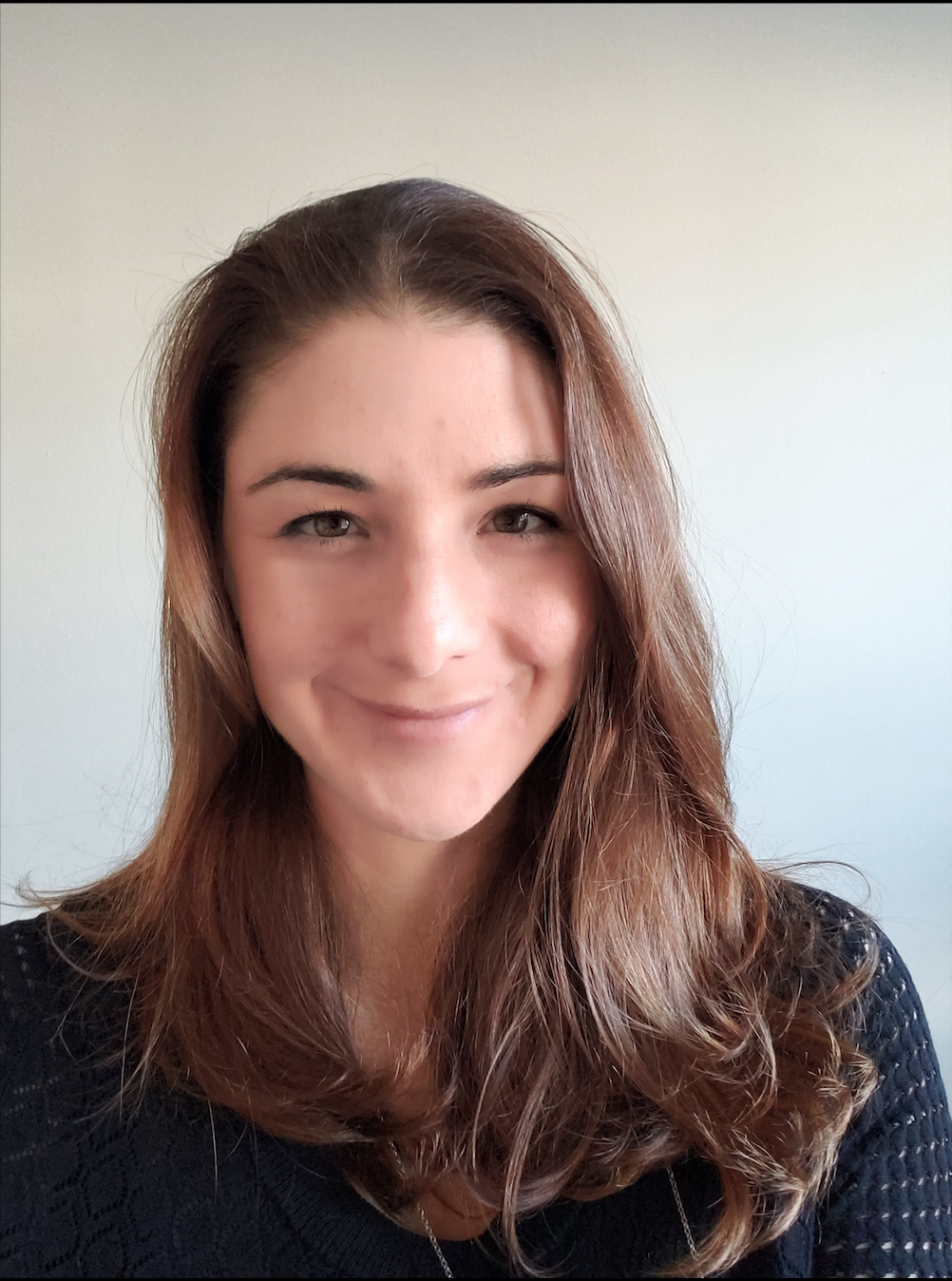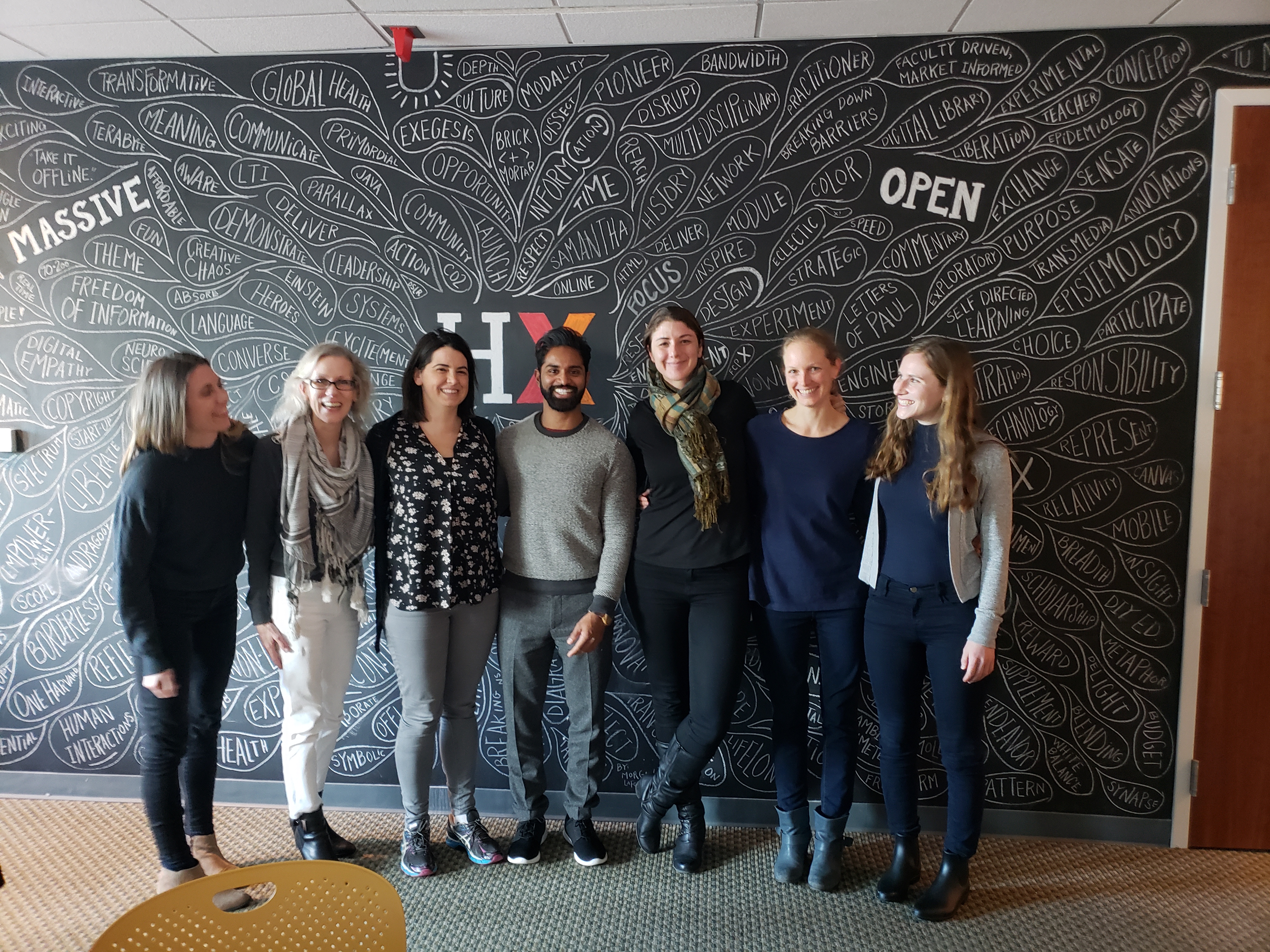Course Team
Course Leadership

Raj Panjabi is a co-founder and CEO of Last Mile Health and an Associate Physician in the Division of Global Health Equity at Harvard Medical School, Brigham and Women’s Hospital. Raj is a recipient of the Skoll Award for Social Entrepreneurship, the TED Prize, and the Global Citizen Movement Award. He was named one of TIME’s “100 Most Influential People,” one of Fortune’s “World’s 50 Greatest Leaders,” a Draper Richards Kaplan Foundation Social Entrepreneur, and an Echoing Green Fellow. Raj is a graduate of the University of North Carolina School of Medicine, and received a Master’s in Public Health from the Johns Hopkins Bloomberg School of Public Health. He also served as a Clinical Fellow at Harvard Medical School and the Massachusetts General Hospital.

Abigail McDaniel is the Community Health Academy's Director of Health Systems Leadership Development and is the Academy's Lead Faculty and Course Director for the course. She has worked in global health and education for the last 15 years and holds a Bachelor’s Degree in Human Biology from Stanford University, as well as a Master of Science in Public Health Degree in International Health from the Johns Hopkins Bloomberg School of Public Health. She has served as an implementer and technical advisor for government-led community health and health systems strengthening programs across Sub-Sarahan Africa, including supporting Liberia's Ministry of Health to design and launch its Community Health Assistant program.
Course Contributors
Global
Giorgio Cometto is Coordinator for the Policies, Norms and Standards unit of the Health Workforce Department in the World Health Organization. He is a medical doctor with a master of science in health policy, planning and finance from the London School of Economics and Political Science at the University of London. Dr. Cometto has worked on health system development at national and international levels over the past 15 years, in humanitarian, post- conflict and development settings.
Paul Farmer is Chief Strategist and co-founder of Partners In Health, Kolokotrones University Professor and chair of the Department of Global Health and Social Medicine at Harvard Medical School, and chief of the Division of Global Health Equity at Brigham and Women’s Hospital in Boston. He also serves as U.N. Special Adviser to the Secretary-General on Community-based Medicine and Lessons from Haiti. Dr. Farmer has written extensively on health, human rights, and the consequences of social inequality.
Henry Perry is a Senior Scientist in International Health at the Bloomberg School of Public Health, Johns Hopkins University. He has three decades of experience in the management and evaluation of health programs in developing countries, and is founder of the NGO Curamericas Global, now working in Bolivia, Guatemala, Haiti and Liberia. He has authored numerous publications on primary health care, health manpower, and community-based approaches to health improvement. Dr. Perry has received the Gordon-Wyon Award from the American Public Health Association for Excellence in Community-Oriented Public Health, and the Dory Storms Child Survival Recognition Award. He has a PhD, MD, and Master in Public Health from Johns Hopkins University.
Angela Gichaga is the CEO for the Financing Alliance for Health. She has served as a frontline clinician, policy maker within Kenya’s Ministry of Health, and most recently a management consultant with McKinsey & Company’s Africa Delivery Hub. Dr. Gichaga has received numerous awards and honors for her work, including the Australian Leadership Awards for Africa, President Obama’s Mandela Washington Fellowship, and was named one of Fortune's World’s Greatest Leaders in 2018. She completed her undergraduate degree in medicine from the University of Nairobi, Master’s in Health Economics and Policy from the University of Adelaide, and a fellowship in Public Sector Management from Morgan State University.
Mariam Claeson is the Director of the Global Financing Facility. She previously served as the Director for Maternal Newborn and Child Health at the Bill & Melinda Gates Foundation, the Regional Program Coordinator for AIDS in the South Asia Region of the World Bank, and the Lead Public Health Specialist in the Health, Nutrition and Population, Human Development Network of the World Bank. She earned her medical degree from Karolinksa Institute, Stockholm, a Master’s in Public Health in International Health from the Johns Hopkins Bloomberg School of Public Health, and a Diploma in Tropical Medicine and Hygiene from the Liverpool School of Tropical Medicine.
Peggy Clark is Vice President of Policy Programs and Executive Director of Aspen Global Innovators Group, where she directs a portfolio of programs promoting breakthrough solutions to global development in the areas of health innovation, leadership and entrepreneurship. Previously, Peggy served as the Executive Vice President of the Aspen Institute, co-founder and Managing Director of Realizing Rights, Chair of the Women’s Program Forum at the Ford Foundation, and as the first Director of Small Scale Enterprise and Credit at Save the Children Federation. She received a Presidential Award for Excellence in Microenterprise from President Bill Clinton, and was instrumental in passage of the WHO Global Code of Practice on the Ethical Recruitment of Health Workers. She holds a Master’s in Economics and Latin American Studies from the Paul H. Nitze School of Advanced International Studies at Johns Hopkins University.
Daniel Palazuelos is an Associate Professor of Medicine, Assistant Director of the Hiatt Global Health Equity Residency in the Division of Global Health Equity at Harvard Medical School, and a Clinician-Educator Hospitalist at Brigham and Women's Hospital. Dr. Palazuelos also serves as Senior Health and Policy Advisor for Community Health Systems at Partners In Health, and as the Co-founder/Chief Strategist for Compañeros En Salud, the Partners In Health sister-project in Mexico. He earned a medical degree from Brown University Medical School, completed his residency in Global Health - Internal Medicine at Harvard Medical School, and earned a Master’s in Public Health from Harvard University School of Public Health.
Nazo Kureshy is a Senior Community Health Systems Advisor, Office of Health Systems at USAID’s Bureau of Global Health. She previously served as Team Leader for Community and Civil Society Engagement to End Preventable Child and Maternal Deaths at USAID, and for almost a decade, Ms. Kureshy led the Agency's largest global partnership with NGOs for health, the Child Survival and Health Grants Program. Ms. Kureshy has worked for more than two decades in various roles to advance the role of communities and broader civil society in improving reproductive, maternal, newborn and child health and nutrition and survival globally.
John Fairhurst is the Head of Private Sector Engagement for the Global Funds to Fight AIDS, Tuberculosis and Malaria, where he leads on innovative finance approaches. He previously served as the Executive Director of Programs for the UBS Optimus Foundation and has held leadership positions at the Global Alliance for Improved Nutrition and the Children’s Investment Fund Foundation. Mr. Fairhurst has experience in venture capital consulting, and has also served in regional and national leadership roles with Oxfam. He has a Master’s in Manufacturing Engineering from Oxford University.
Ligia Paina is an Assistant Professor at the Johns Hopkins Bloomberg School of Public Health. Her background is in international studies and global public health systems. She has conducted research and also developed and teaches graduate courses at Johns Hopkins and on Coursera on complexity and systems thinking. She utilizes mixed methods and multi- and trans-disciplinary approaches to study complex systems in order to identify strategies to improve quality and access to public health services, particularly for underserved populations.
Ethiopia
Ephrem Lemango is the Executive Director of the International Institute for Primary Health Care, Federal Ministry of Health of Ethiopia. A physician with a specialty in health management, planning and policy, Dr. Ephrem led the development of several national strategies for Ethiopia including reproductive health, adolescent and youth health, family planning, and nutrition strategies, and has made significant contributions to the development of the Ministry’s quality and equity strategic plan. Dr. Ephrem sits on several hospital boards and continental and global advisory groups and has been a key leader in the establishment of Ethiopia’s national RMNCH-N Research Advisory Council, which addresses quality, equity, coverage and accessibility of maternal/child health and nutrition services in Ethiopia. He earned his medical degree from Addis Ababa University, as well as a Master’s in Health Management, Planning and Policy from the University of Leeds and Post-graduate Medical Certificate from Cardiff University.
Hagos Godefay is Director for the Tigray Regional Health Bureau, Federal Ministry of Health Ethiopia. He is a global health epidemiologist, with a focus on maternal health in rural Ethiopia, and has used his research findings to influence policy and reduce pregnancy-related deaths on a regional and national scale. Dr. Godefay completed his Master's in Public Health at Gondar University in Ethiopia, and his Ph.D. in Epidemiology and Public Health at Umeå University in Sweden.
Zufan Damtew is the former Director of the Health Extension Program, Federal Ministry of Health Ethiopia. She has worked at different levels and positions in the health care system of Ethiopia. Dr. Zufan has Bsc in Nursing, Master’s in Public Health and PhD from University of Oslo.
Temesgen Ayehu is the Director of the Health Extension Program, Federal Ministry of Health Ethiopia. He previously served as a Leadership and Governance Officer with JSI Research & Training Institute, and the Team Leader for Health Extension and Primary Health Services, Federal Ministry of Health Ethiopia. Mr. Ayehu has actively participated in the design, development and implementation of national strategies and guidelines including Health Sector Transformation Plan, Primary health care reforms, school health program, and Health Extension Program. He has Master’s in Public Health - Health Systems and Policy Management from the Royal Tropical Institute, and a BSc in Public Health from Jimma University.
Bangladesh
Khaleda Islam is the Former Director, Primary Health Care and Program Manager, National Newborn Health at Bangladesh’s Directorate General of Health Services. She has decades of experience in primary health care delivery, medical education and training, and maternal and child health and nutrition. Dr. Islam completed her medical education at the University of Dundee, has a Master’s in Public Health from Dhaka University, and a Certificate in Global Tobacco Control from Johns Hopkins University.
Mushtaque Chowdhury is the Vice Chairperson for BRAC, and a Professor of Clinical Population and Family Health, Department of Population and Family Health, at the Mailman School of Public Health at Columbia University. Dr. Chowdhury has experience working in Bangladesh, Pakistan, Nepal, Thailand, China, and Ethiopia, and served as senior advisor at the Rockefeller Foundation in Thailand, overseeing the health portfolio of the Foundation in Asia. Dr. Chowdhury is the founding Dean of BRAC University's James P. Grant School of Public Health in Bangladesh, and also founded the organization’s Research and Evaluation Division. He has a PhD from the London School of Hygiene and Tropical Medicine.
Liberia
Bernice Dahn is the Vice President, University of Liberia College of Health Sciences, and the former Minister of Health for Liberia. She also serves as co-chair of the Community Health Academy’s Global Faculty Network. Dr. Dahn previously served as Reproductive Health Adviser at United Nations Population Fund, as well as Family Health Director and Director for Nutrition at the Ministry of Health, Liberia. Dr. Dahn earned her medical degree from the A.M. Dogliotti College of Medicine, University of Liberia, and a BSc in zoology from the T. J. Faulkner College of Science & Technology, also at the University of Liberia. She also earned a Master of Public Health from the School of Public Health & Community Medicine at the University of Washington.
Yah Zolia is the former Deputy Minister of Health for Planning and Research at the Ministry of Health, Liberia, where she led the development of the 10-Year National Health and Social Welfare Plan for 2011-2021, and oversaw development of the post-Ebola Investment Plan for Building a Resilient Health System in Liberia. She has over 14 years of experience in the health sector, focusing on research, policy, and strategic planning; human resource development; health finance; and monitoring and evaluation. Ms. Zolia has a MSc in Parasitology and Immunology from the University of Nairobi.
Tamba Boima is the former Director of the Community Health Services Division at the Ministry of Health, Liberia, where he led a team of professional health workers, stakeholders, partners in developing, planning, implementing, and reporting on the country’s Community Health Services. He was deeply involved in developing and implementing community-based strategies for combating Ebola during the 2014-2016 outbreak.
Luke Bawo is the Director of the Health Monitoring, Evaluation, and Research Unit at the Ministry of Health, Liberia, where he oversees the development and operationalization of Research, M&E and HMIS systems. Mr. Bawo previously served in various capacity development and health systems strengthening roles, and spearheaded the post-war reactivation of basic health care services in several counties, as well as the development of the National Health Information & ICT Strategic Plan for 2016-2021. During the Ebola outbreak, Mr. Bawo was the National Chairman for Ebola EPI-Surveillance in Liberia, and he currently serves as Technical Lead for Data Management for a joint US/Liberia clinical research initiative for Ebola vaccine trials. He has degrees in Chemistry, Pharmacy and Public Health, with concentrations in Epidemiology and Monitoring and Evaluation.
Roland Kessely is the Director of the Health Financing Unit at the Ministry of Health and Social Welfare, Liberia. He has spent over a decade working with the Ministry of Health and Social Welfare, and has experience in both public and private health sectors, as well as with developing health policy and financing strategies. He has a Master’s in Health Policy Management and a BSc in Biology from Cuttington Graduate School of Professional Studies.
Jerome Korvah is the Community Based Information System Focal Point in the Health Monitoring, Evaluation, and Research Unit of Liberia’s Ministry of Health. He has a bachelor of science in geology and earth science from the University of Liberia.
Andrew Gweh serves as the Community Health Focal Person for Rivercess County Health Team, Liberia Ministry of Health. He has a bachelor’s degree in Biology from Cuttington University, Liberia.
Community Health Academy Leadership
Magnus Conteh is the Executive Director of the Community Health Academy. Throughout his 25-year career, Magnus has been at the forefront of the collision between global health and digital education. Previously, Magnus worked for seven years at World Vision Ireland, most recently serving as the Deputy CEO/Director of Programmes and Strategy. Magnus holds a Masters of Health Science (Hons) in Health Services Research from the National University of Ireland, Masters of Arts in Health Service Policy and Management from Brunel University (UK), and a Postgraduate Diploma in Management Studies from Kingston Business School at Kingston University (UK).
Course Developers

This course would not have been possible without a dedicated team of course developers and technical experts. The core course development team, pictured left to right, includes: Taylor Hendricks, Community Health Academy; Lesley-Anne Long, Community Health Academy; April Opoliner, HarvardX; Tej Nuthulaganti, Clinton Health Access Initiative; Abigail McDaniel, Community Health Academy; Meike Schleiff, Johns Hopkins Bloomberg School of Public Health; and Emily Gruber, Johns Hopkins Bloomberg School of Public Health.